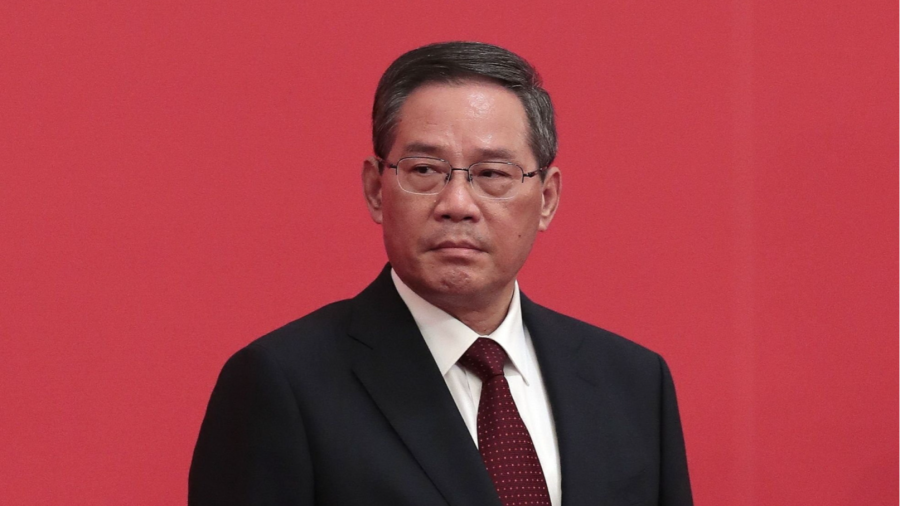
Earlier this year as China’s worst coronavirus outbreak since the start of the pandemic erupted in Shanghai, Li Qiang’s career came under immense pressure.
The city’s highest ranking official presided over the lockdown of the financial centre, a city of 26mn people, a move that took months to stop the virus’ spread, disrupted the economy and sparked panic as people ran out of food and medicine.
In a moment highlighting his unfamiliarity with the daily chaos unleashed by the closure, Li asked his aides to explain the concept of a “group leader”, a term being used to describe a person organising groceries for residents banned from leaving their flats.
But just months later, Li has been promoted by China’s president Xi Jinping into the Politburo Standing Committee to serve as the party’s second-highest ranking official and presumed premier-in-waiting.
A loyal former secretary of Xi, who he followed on to the stage on Sunday, Li’s rapid ascension is defining evidence of the president’s consolidation of power as he prepares for an unprecedented third term.
“It runs counter to all kinds of predictions we had in the past,” said Alfred Wu, a professor at the National University of Singapore. “We thought Covid management in Shanghai was a failure, but for Xi Jinping it showed Li Qiang is loyal”.
The president can “appoint his people, whatever his people are doing,” he added.
Li, born in 1959 in Zhejiang and a former worker at an irrigation and drainage station in his youth, worked directly under Xi while governing the province from 2004 to 2007.
He is considered part of Xi’s so-called “Zhijiang army” of former colleagues from the province — a play on words that refers to a column the president wrote in a regional newspaper over the same period.
According to analysts at the Brookings Institution, Li is one of Xi’s “most trusted protégés”. In 2013, he himself became governor of Zhejiang, before taking the role of party secretary of the economically critical province of Jiangsu and later chief of financial hub Shanghai, an appointment made at the last party congress in 2017.
The major stumbling block in his rise — which was widely considered to derail his chance at a major role in the party — was Shanghai’s outbreak in March to June this year. The outbreak provoked widespread criticism after the city’s experimentation with a more flexible approach that ultimately allowed cases to spread before fully locking the city down.
In the run-up to the party congress, Shanghai took no chances. In a model example of the zero-Covid constraints that Xi last week applauded, authorities took a hard line approach to new infections, cordoning off neighbourhoods and quarantining close contacts for 7-10 days.
Li, who has no central government experience, is now in line to replace Premier Li Keqiang, a rival for China’s top role in 2012, and a figure who has been largely sidelined since. Associated with a market-orientated approach, Li Keqiang was not included in the 205-person central committee announced on Saturday, making him ineligible for the seven-person elite standing committee announced a day later.
There are elements of Li Qiang’s past that are also associated with private sector development, which Brookings said he has been “strongly supportive of”.
In Shanghai, the country’s biggest city and leading financial hub, Li Qiang oversaw the establishment of the STAR Market, a new tech-based stock market that one former market official described as a “gift” from Xi. He also oversaw the construction of a Tesla factory in the city, which took just 10 months.
“Putting aside events in the past year, he’s basically had a good reputation in Shanghai among the business community. So he’s simultaneously a Xi protégé and someone who doesn’t look ‘anti-business’ to investors,” said Andrew Gilholm, head of China analysis at Control Risks, a consultancy.
But in light of the lockdown, Gilholm suggested the appointment is also “a sign that implementing central directives is officials’ critical performance metric”.
Analysts added that the promotions and reshuffles at the congress — even in the case of the second-most powerful position — point to Xi’s capacity to pack China’s elite political circles with longstanding allies.
China’s parliament will not confirm Li and other top party officials’ government posts until its annual session convenes in March.
“The premiership under Xi Jinping is really totally different to the premiership under Deng Xiaoping,” said Wu, in reference to China’s past emphasis on a collective leadership ethos that began after Deng retreated from the political stage in 1994 and died three years later but has ended with Xi. “The premier is no longer as important as before”.
Additional reporting by Cheng Leng in Hong Kong, Wang Xueqiao in Shanghai and Tom Mitchell in Singapore